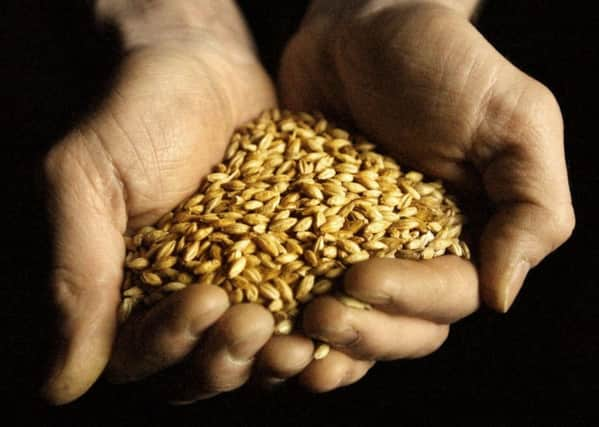Centre will put barley at the hub of Scots farming


The proposals to set up a new centre of excellence have been drawn up by the James Hutton Institute (JHI), in conjunction with the University of Dundee, with the aim of creating a platform for the translation of barley research into economic, social, environmental and commercial impacts for the breeding, farming, malting, brewing, feed, food, health and related industries.
While discussions on the project are already ongoing with the Scottish Government, Westminster MPs were yesterday told that while the barley crop itself was worth £600 million to the UK economy, the downstream industries of malting, distilling, whisky and animal feed generated more than £6 billion for the economy each year.
Advertisement
Hide AdAdvertisement
Hide AdBusiness economist Jean Hamilton said that a state investment in the project of £36m to get the hub up and running was likely to lead to a return of upwards of £700m to the national economy over the next twelve years.
Ian Sands, chairman of NFUS combinable crops committee, who addressed MPs at yesterday’s meeting, said that setting up such a facility – which would include both government-backed and commercial research – would help accelerate the sort of “joined up thinking” which would lead to practical improvements in barley breeding for both farmers and those using the crop.
He said that while the target of having the hub up and running by 2019 was ambitious, it was important that the momentum of the project was maintained to see it through to completion. The JHI estimated that a 1 per cent increase in malting barley yields would be worth £1.5m to Scottish farmers, while breeding varieties which were less reliant on fertilisers and pesticides could add between £17m and £42m per year to the economy.
Professor Claire Halpin, head of plant sciences at the University of Dundee, said that, working in collaboration with high-tech facilities at the university, the hub would enable theoretical research to be translated into practical applications much more quickly.
